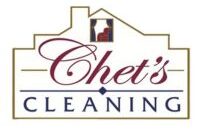When it comes to keeping your floors clean, having the right vacuum cleaner can make all the difference. Whether you have carpet, hardwood, or a mix of flooring types, choosing a vacuum that suits your needs is essential. In this guide, we’ll explore some of the best vacuum cleaners on the market, considering factors like performance, versatility, and affordability, to help you make an informed decision.
Gold Rated Vacuum Cleaners We Recommend:
- RATED BEST: SupraLite Premium Lightweight Vacuum
- GREAT FOR PETS: R25 Premium Pet Upright Vacuum
- RUNNER UP: Tandem Air Deluxe Upright Vacuum

More Affordable Vacuum Cleaners:
- RATED BEST: Dyson Ball Multi Floor 2
- Runner Up: Oreck Elevate Conquer Bagged Upright Vacuum Cleaner
- Best for Hardwood Floors: Tineco Floor ONE S5 PRO 2 Cordless Wet Dry Vacuum Smart Hardwood Floor Cleaner Machine
- Best for Pet Owners: Kenmore Elite 31150 Pet Friendly Bagged Upright Beltless Vacuum
- Most Affordable: Shark Navigator Lift-Away Professional
What is the Price Range for a High-Quality Vacuum Cleaner?
Typically, a better quality vacuum will cost you somewhere between $399 and $899. This investment ensures durability, with the machine lasting anywhere from 10 to 20 years.
While this initial cost might seem steep, it’s important to consider the frequency of vacuum use. Whether it’s once a week or daily, a quality vacuum proves its worth over time. With a lifespan up to ten times longer than cheaper alternatives, the expense averages out to about $5 per month for a superior machine that not only performs better but also offers a more enjoyable user experience.
Let’s break down what you can expect at different price points:
Under $399: Vacuums in the $300 range are generally designed for bare floors, area rugs, or very flat carpeting. For thicker carpets or rugs, a higher budget is necessary due to the complexity and expense of the revolving brush systems required for proper cleaning.
$399-$599: This price range strikes a balance between affordability and quality. While you may not get all the bells and whistles, you’ll still benefit from durable materials, robust motors, and excellent performance.
$649 – $999+: At the top end of the spectrum, vacuum cleaners offer premium features such as increased filtration, automatic suction control, lighted floor tools, and cushioned bumper guards. While these features are not essential, they do make vacuuming less of a chore and are worth considering if your budget allows for it.
Vacuum Cleaner Performance
Assessing the cleaning performance of vacuum cleaners involves considering crucial specifications such as water lift (or sealed) suction and airflow. While manufacturers often emphasize the wattage or amperage of their vacuums, these metrics measure motor power rather than cleaning effectiveness. For optimal performance, focus on suction power, airflow, and sealed suction, as they directly impact the vacuum’s ability to pick up dirt and debris.
Filtration
The filtration capability of a vacuum cleaner plays a significant role in its cleaning effectiveness. High-quality filtration is essential for trapping fine particulates and allergens, preventing them from recirculating into the air. For individuals with allergies or asthma, investing in a vacuum with HEPA filtration is highly recommended. HEPA filters remove 99.97% of particles as small as 0.3 microns, ensuring cleaner indoor air quality.
Quality and Durability
When selecting a vacuum cleaner, durability is key to ensuring long-term use. Look for sturdy construction with solid components and durable seals. Pay attention to fit and finish, avoiding vacuums with rough edges or flimsy materials. Mass-market, low-priced options may lack the durability of higher-quality machines, so prioritize brands known for their longevity. Additionally, consider the warranty length and coverage, particularly for the motor, as it can serve as an indicator of product quality and durability.

